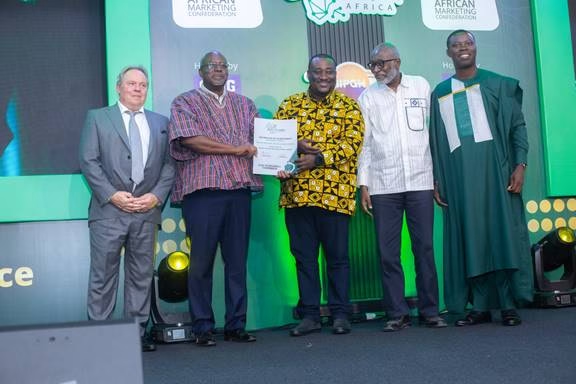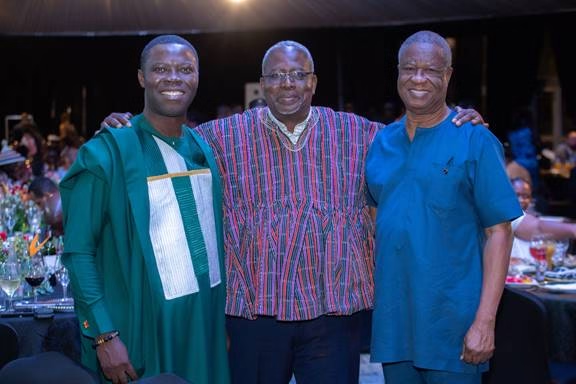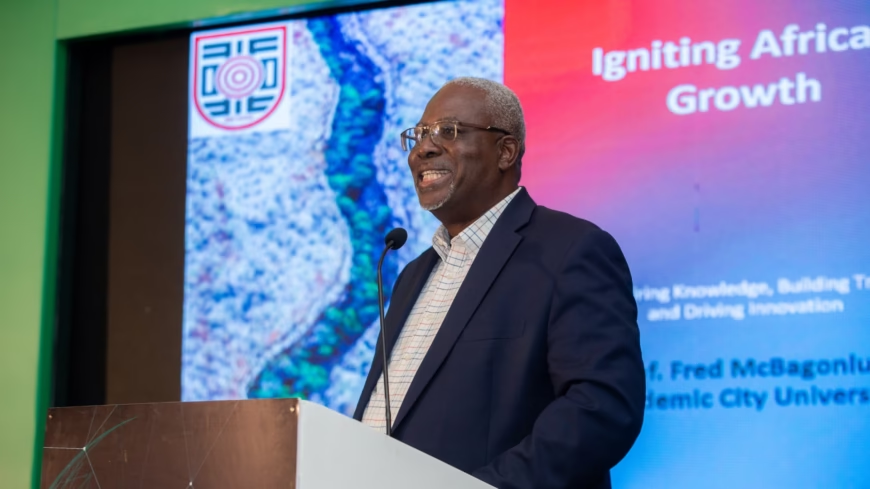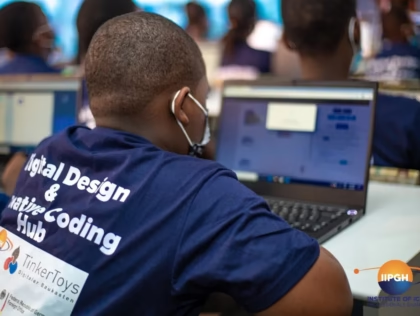At the close of the 2025 TICON-AMC Conference held at the Labadi Beach Hotel in Accra, Prof. Fred McBagonluri, President of Academic City University and Board Chair of the Institute of ICT Professionals Ghana, delivered a keynote address that resonated deeply with delegates from across Africa and beyond. His speech, titled “Igniting Africa’s Growth: Acquiring Knowledge, Building Trust, and Driving Innovation,” was a powerful call to action, urging the continent to seize its moment and shape its own destiny.
The AMC-TICON Africa 2025 Joint Conference, co-hosted by the Chartered Institute of Marketing Ghana and the Institute of ICT Professionals Ghana, concluded successfully after three days of dynamic engagements, strategic networking, and visionary dialogue. Held from August 20 to 22, the conference welcomed over 500 marketing and technology professionals from across Africa and beyond. United by the mission to empower Africa’s marketing and ICT industries, the event marked a significant milestone in the continent’s journey toward digital transformation, innovation, and inclusive trade.
Prof. McBagonluri played a central role throughout the conference, not only as keynote speaker but also as Chair of the TICON Africa Awards Committee. In this capacity, he led the adjudication process that recognized excellence across Africa’s technology and innovation sectors. His leadership in this role underscored his commitment to meritocracy, innovation, and the celebration of African ingenuity.

In his keynote, Prof. McBagonluri began by highlighting Africa’s demographic advantage. With a median age of just 19.2 years and a projected population of 2.5 billion by 2050, the continent is poised to become a major global economic force. He emphasized that Africa’s combined consumer and business spending is expected to exceed 16 trillion dollars by mid-century, positioning the continent as a critical player in the global economy.
However, he cautioned that this potential will remain unrealized unless Africa confronts its structural challenges head-on. He identified inadequate infrastructure, fragmented regulatory environments, funding gaps, and a persistent mismatch between education and labor market needs as key barriers to progress. To overcome these, he proposed a three-pronged strategy centered on acquiring knowledge, building trust, and driving innovation.
He passionately argued that Africa’s most valuable resource is not its minerals or oil, but its youth. He called for a radical transformation of education systems across the continent, advocating for digital learning platforms, vocational training, and curricula tailored to Africa’s unique development needs. From coding to climate-smart agriculture, he urged stakeholders to equip young Africans with the tools to become problem-solvers and innovators. He highlighted the importance of Technical and Vocational Education and Training, which continues to face cultural stigma and underinvestment despite its potential to transform livelihoods. He also cited the success of initiatives like the World Bank’s African Centers of Excellence, which have expanded postgraduate education and research capacity across the continent.
Prof. McBagonluri then turned to the importance of trust, describing it as the currency of progress. He emphasized that knowledge alone cannot build bridges or power economies. Trust in institutions, governance, and regional cooperation is essential for attracting investment and fostering collaboration. He called for transparent institutions, forward-looking regulatory frameworks, and the activation of regional economic blocs such as ECOWAS, the Southern African Development Community, and the East African Community. He praised the African Continental Free Trade Area as a bold step toward creating a unified market that can drive collective prosperity and economic resilience.

The final pillar of his vision was innovation. Prof. McBagonluri celebrated the ingenuity already emerging across the continent, from Kenya’s M-Pesa revolutionizing mobile money, to South Africa’s advances in health technology, to Morocco’s leadership in renewable energy. He urged African governments, investors, and development partners to support startups, nurture entrepreneurial ecosystems, and create environments where ideas can flourish. He argued that Africa has a unique opportunity to leapfrog outdated systems and build a future that is digital, sustainable, and inclusive.
His message was not just theoretical. It was deeply personal. Born in East Legon, Accra, Prof. McBagonluri has held senior leadership roles in global companies such as Siemens Healthcare, Becton Dickinson, and Joerns Healthcare. He holds a PhD in Materials Engineering from the University of Dayton, an MBA from MIT Sloan, and has been recognized with numerous awards including the US Black Engineer of the Year and as a finalist for NASA’s Astronaut Candidate Corps. With over 20 US patents and a distinguished academic and professional career, he embodies the very principles he advocates: knowledge, trust, and innovation.
The 2025 AMC-TICON Africa Conference itself was a testament to these principles. It featured sessions on building brand trust, navigating emerging marketing trends, leveraging artificial intelligence and digital platforms, and empowering youth and women in Africa’s digital economy. One of the highlights was the launch of the AMC Tourism Chapter, a collaborative initiative with the Ghana Tourism Authority and Zambia Tourism Agency aimed at boosting intra-African tourism and economic integration. The awards ceremony, chaired by Prof. McBagonluri, honored trailblazers in technology, marketing, and innovation, reinforcing the importance of celebrating African excellence. The ICT Lifetime Achievement awards was conferred on Prof. Nii Narku Quaynor (The Father of Internet in Africa) for the pioneering role he played in bringing internet to Africa.
As the conference drew to a close, Prof. McBagonluri left the audience with a powerful message. “Let us invest in knowledge to empower our people. Let us foster trust to create a foundation of stability and sustainability. And let us champion innovation to build a future that is uniquely, brilliantly, and powerfully African. The ignition switch is waiting. Let us turn it on together.”
His words captured the spirit of the conference and the aspirations of a continent on the rise. Africa’s future, he reminded us, is not something to be awaited. It is something to be built.





